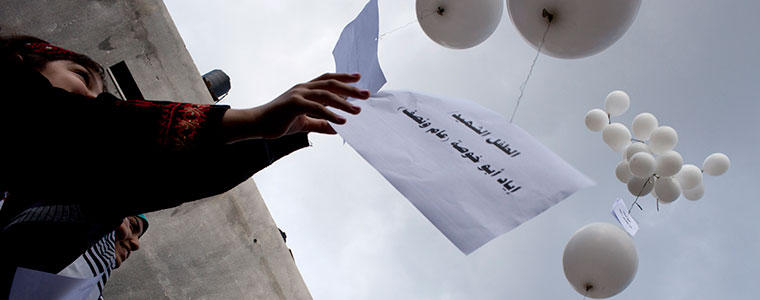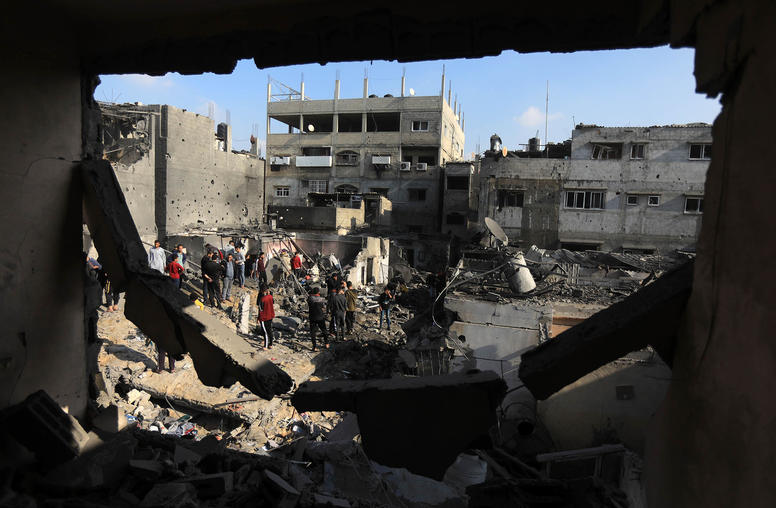
On November 29, 1947 the United Nations General Assembly passed Resolution 181, recommending the adoption of a partition plan for the British Mandate of Palestine, to result in two states: one Jewish and one Arab. The Arab rejection of that plan, the subsequent war in 1948, and the series of ensuing wars and attempts at peace are now part of a body of alternately bloody and hopeful history that gets short-handed as the iconically-intractable Arab-Israeli conflict.
Yesterday, 65 years on from that date, that same U.N. body overwhelmingly approved a Palestinian bid to upgrade its status in the General Assembly to that of nonmember observer state. Nobody had doubted the direct success of the application– it had long been clear that there was more than enough support in the 193-member body for the bid to succeed. But how that vote passed -- 139 in favor, 41 abstentions, and nine against --amid the context of recent events, has left a different “day after” picture than many had envisioned.
Yesterday’s events followed President Mahmoud Abbas’ unsuccessful and infinitely more ambitious bid at the U.N. Security Council in September 2011 to achieve entry as a full member of the U.N. Abbas was as certain then of failure as he was confident yesterday of a win. But underlying the tactic was the reality of a moribund peace process and weakening domestic legitimacy for Abbas, whom many Palestinians view as a leader who had not delivered on his singular promise of a Palestinian State. Abbas then, and yesterday, advanced an argument that by elevating Palestinian status in the international community, and gaining recognition of a Palestinian right to statehood, he would be safeguarding the promise of an eroding two-state solution and laying the foundation for a return to more balanced negotiations between parties of more equal standing. Less publicly-articulated was a perceived need to simply disturb the status quo: guided by a historically-grounded conviction that progress towards peace in the Arab-Israeli context had only been made in the wake of violent shake-ups. The leadership in the West Bank, under Abbas, had made a commitment to nonviolence, and many in his camp viewed the U.N. bid as the ultimate form of nonviolent resistance.
The 2011 Security Council bid failed, the PA suffered financial repercussions due to U.S. and Israeli retaliatory measures, and negotiations remained stalled. In this context, and in contrast to 2011, minimal Palestinian popular enthusiasm surrounded the lead-up to yesterday’s less ambitious U.N. bid, and it had appeared that, while guaranteed to result in a small symbolic victory, it would have scant impact on either the peace process or Abbas’ own waning domestic fortunes. Compounding the latter, in the most recent round of fighting between Hamas and Israel, Hamas managed to elevate its own domestic standing at Abbas’ expense, successfully portraying itself to Palestinians as the victor whose violent resistance strategy is the only way to capture Israel’s attention and force concessions.
But the Hamas-Israel war, and subsequent ceasefire had other unforeseen ramifications. The days leading up to yesterday’s bid saw changes of heart – or certainly of strategy – on the part of several countries upon which Israel and the U.S. had relied as partners in opposition to the Palestinian move at the U.N. While success was assured, the last minute choice by Australia and Germany to abstain rather than vote “no;” by Britain to have suggested that -- under certain conditions -- it might vote “yes;” and by others, including France and Spain, to throw support behind the move, gave Abbas a shot of moral support and legitimacy. With Hamas riding higher at home, the message from these countries was clear: we support the route of nonviolence and voices of moderation to end this conflict.
As the dust now settles on the U.N. bid, and as President Obama embarks on a second term in office amid speculation about a renewed push for Arab-Israeli peace, all eyes will be on the proverbial day after yesterday’s vote, and the actions of the relevant stakeholders.
Abbas has stated that he does not consider the U.N. route an alternative to negotiations and stands ready to return to talks with Israel. However, prior to yesterday, there had been failed attempts by Western diplomats to push for Palestinian commitments both to not pursue membership in the International Criminal Court (where Israel and its allies fear the Palestinians will try to press its case against Israel), and to return to negotiations without precondition. It is unlikely that Israel will resume talks without such guarantees. When in 2011 Abbas launched his bid at the Security Council, he acknowledged that the “Arabs had erred” in rejecting the 1947 partition plan, suggesting that now is the time to move on from that mistake and to realize the vision of two states for two people. Abbas chose not to reiterate that at the U.N. yesterday and took a far more rhetorically confrontational tone, giving little reassurance to Israel that the “day after” could result in a hand extended. If the Palestinians are serious about returning to the table, they will need to make good on their explanation that the U.N. move was not a tool for confrontation, but rather an opportunity to revive progress towards a two-state solution.
Likewise, Israel should refrain from reactions that only make a return to negotiations more elusive. As the path of Europe became clear in the past week, Israel saw the writing on the wall and began to downplay the significance of the inevitable. It also began to back away from some of its earlier threats of punitive measures in response to a General Assembly bid, stating that Israel will judge the need for a reaction in accordance with what the Palestinians’ next move is. Within this approach lay an opportunity for both sides to take constructive steps forward, and an opening for U.S. diplomacy to exploit. However, today saw a decision by Prime Minister Netanyahu to give the green light for 3,000 new housing units over the Green Line as a response to yesterday’s vote. Such a move can only serve to further entrench a cycle of reactive tit-for-tat between the parties.
For Israel and for the U.S., yesterday was a diplomatic setback. The boost for Abbas in the form of European support highlighted the isolation of Israel’s and the U.S.’s position. But as both have aptly noted, nothing has changed on the ground and negotiations and a viable peace process remain the only way forward to achieving a sustainable and comprehensive solution to the conflict, based upon a two-state solution. Good faith efforts toward this end should be invigorated by all parties, now, and with maximal investment, before the promise of intractability becomes self-fulfilling.
Comments:
| Date: Saturday, December 1, 2012 5:31 AM From: UNPOL Tajudeen BAKRE Adjoin Chef de la Cellule Induction |
|
I think the main issue is the assurance of Israeli security; because in this ocean of hatred in which it is surrounded, there must be a concrete guarantee for her security. I think deep down the Israelis are not belligerent and aren't oppose to a Palestinian state. But when you tout overtime that you must wipe it off the face of the earth, an ancient civilization like that, then don't expect them to fold their hands and stay, as the French would say, bouche bee: they must take certain measures to protect themselves. However and as you rightly suggested, the Israelis should continue with their matured approach to the issue and not take steps that would rather compound them. |



